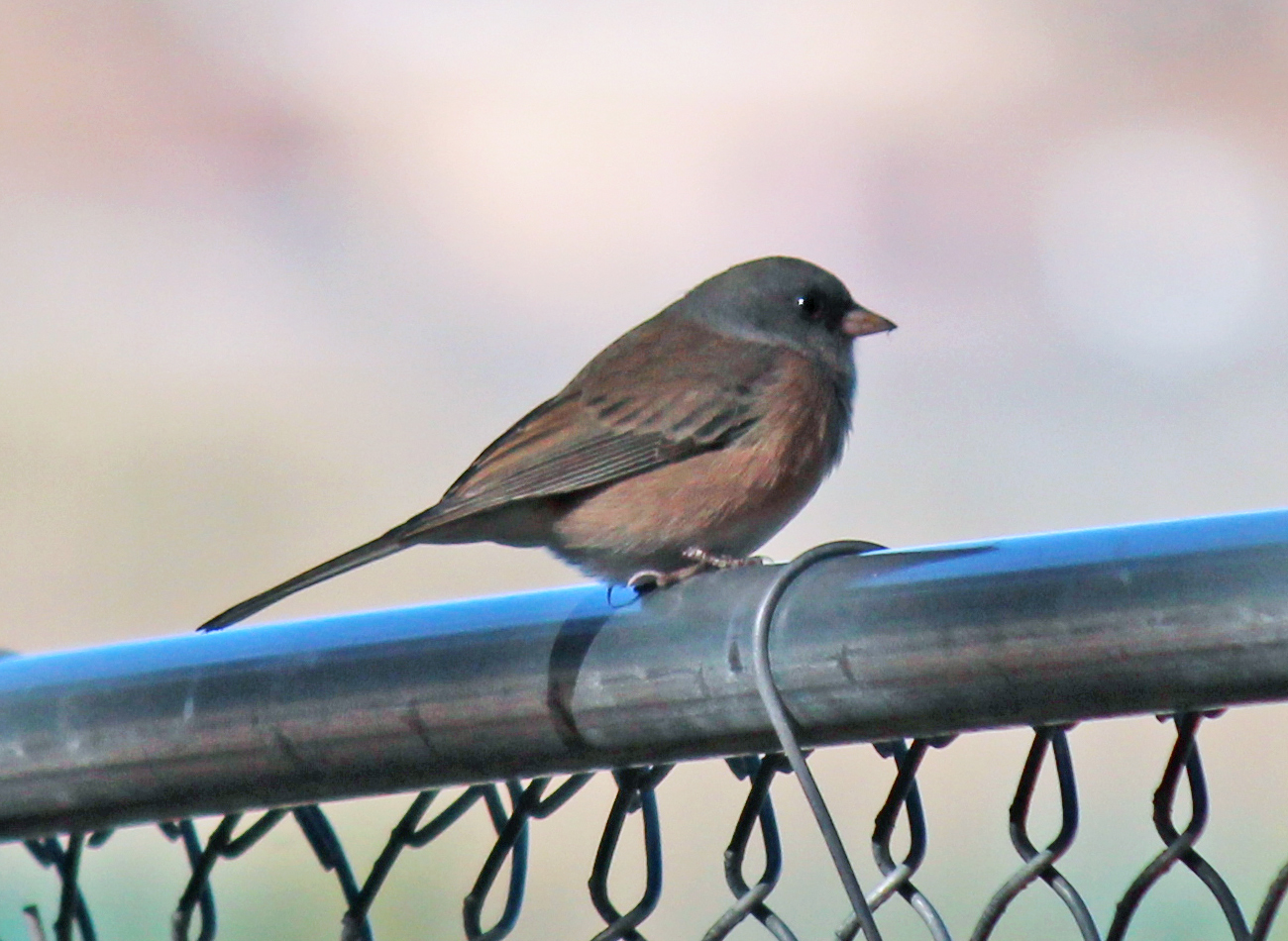Junco on:
[Wikipedia]
[Google]
[Amazon]
 A junco ,
A junco ,
 A junco ,
A junco , genus
Genus ( plural genera ) is a taxonomic rank used in the biological classification of living and fossil organisms as well as viruses. In the hierarchy of biological classification, genus comes above species and below family. In binomial nom ...
''Junco'', is a small North American bird in the New World sparrow
New World sparrows are a group of mainly New World passerine birds, forming the family Passerellidae. They are seed-eating birds with conical bills, brown or gray in color, and many species have distinctive head patterns.
Although they share t ...
family Passerellidae. Junco systematics are still confusing after decades of research, with various authors accepting between three and twelve species
In biology, a species is the basic unit of classification and a taxonomic rank of an organism, as well as a unit of biodiversity. A species is often defined as the largest group of organisms in which any two individuals of the appropriate s ...
. Despite having a name that appears to derive from the Spanish term for the plant genus ''Juncus
''Juncus'' is a genus of monocotyledonous flowering plants, commonly known as rushes. It is the largest genus in the family Juncaceae, containing around 300 species.
Description
Rushes of the genus ''Juncus'' are herbaceous plants that superfic ...
'' (rushes), these birds are seldom found among rush plants, which prefer wet ground, while juncos prefer dry soil.
Their breeding habitat is coniferous or mixed forest areas throughout North America, ranging from subarctic taiga
Taiga (; rus, тайга́, p=tɐjˈɡa; relates to Mongolic and Turkic languages), generally referred to in North America as a boreal forest or snow forest, is a biome characterized by coniferous forests consisting mostly of pines, spruc ...
to high-altitude mountain forests in Mexico and Central America south to Panama. Northern birds usually migrate farther south; southern populations are permanent residents or altitudinal migrants, moving only a short distance downslope to avoid severe winter weather in the mountains.
These birds forage on the ground. In winter, they often forage in flocks. They eat mainly insects and seeds. They usually nest in a well-hidden location on the ground or low in a shrub or tree.
Taxonomy
The genus ''Junco'' was introduced in 1831 by the German naturalistJohann Georg Wagler
Johann Georg Wagler (28 March 1800 – 23 August 1832) was a German herpetologist and ornithologist.
Wagler was assistant to Johann Baptist von Spix, and gave lectures in zoology at the Ludwig Maximilian University of Munich after it was moved ...
for a single species, the yellow-eyed junco. The yellow-eyed junco is therefore now the type species
In zoological nomenclature, a type species (''species typica'') is the species name with which the name of a genus or subgenus is considered to be permanently taxonomically associated, i.e., the species that contains the biological type specime ...
. The genus name is from Latin
Latin (, or , ) is a classical language belonging to the Italic branch of the Indo-European languages. Latin was originally a dialect spoken in the lower Tiber area (then known as Latium) around present-day Rome, but through the power of the ...
''iuncus'' meaning "rush".
The genus contains five species:
References
External links
* * {{Taxonbar, from=Q857319 Bird genera American sparrows Taxa named by Johann Georg Wagler